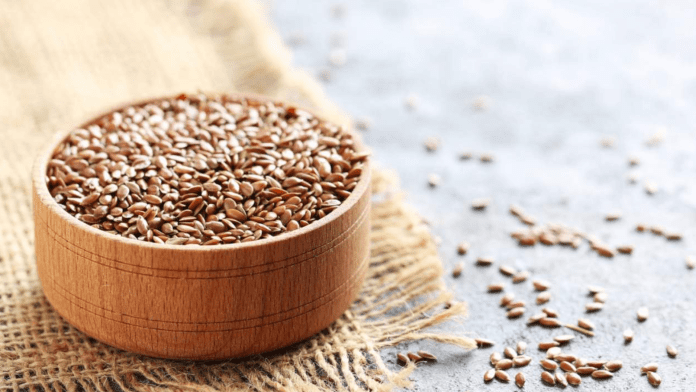Conceiving a child is a profound desire for many women and couples. While numerous factors contribute to fertility, diet plays a significant role in promoting reproductive health. In recent years, flax seeds have gained attention for their potential benefits in supporting fertility in women. This article explores the role of flax seeds in enhancing fertility and provides insights into their potential mechanisms of action.
Flax Seeds and Nutritional Profile:
Flax seeds, scientifically known as Linum usitatissimum, are tiny brown or golden-colored seeds that have been consumed for centuries. They are rich in nutrients such as omega-3 fatty acids, fiber, lignans, and essential vitamins and minerals. These nutritional components make flax seeds a valuable addition to a fertility-focused diet.
Omega-3 Fatty Acids and Hormonal Balance:
Omega-3 fatty acids, found abundantly in flax seeds, play a crucial role in maintaining hormonal balance within the female reproductive system. These healthy fats help regulate hormone production and reduce inflammation, which can positively impact ovulation and improve the chances of conception. Consuming flax seeds may help optimize hormonal function and create an environment favorable for fertility.
Lignans: The Phytoestrogens in Flax Seeds:
One of the unique components of flax seeds is lignans, a type of phytoestrogen. Phytoestrogens are plant-based compounds that resemble human estrogen, although their effects are much milder. Lignans act as weak estrogen agonists or antagonists, depending on the hormonal environment in the body. This property allows them to potentially modulate estrogen levels, which is vital for reproductive health. Flax seeds are considered one of the richest sources of lignans, making them an intriguing option for women aiming to boost their fertility.
Supporting Reproductive Health and Egg Quality:
Flax seeds’ nutrient profile, particularly their omega-3 fatty acids and lignans, contributes to supporting overall reproductive health. Omega-3 fatty acids help maintain healthy uterine lining, improve blood flow to the reproductive organs, and enhance egg quality. Additionally, the lignans found in flax seeds have been associated with improved ovarian function, reduced incidence of anovulation, and regulation of the menstrual cycle. These combined effects can potentially enhance a woman’s chances of conceiving.
Incorporating Flax Seeds into the Diet:
To reap the potential fertility benefits of flax seeds, it is essential to incorporate them into the daily diet effectively. Flax seeds can be consumed ground or as flaxseed oil. Ground flax seeds are more readily absorbed by the body due to their increased surface area, providing easy access to their beneficial components. They can be sprinkled on cereals, added to smoothies, incorporated into baked goods, or used as an egg substitute in recipes. It is important to store flax seeds properly to prevent oxidation and rancidity.
Considerations and Precautions:
While flax seeds offer potential benefits for fertility, it is crucial to exercise caution and consider individual circumstances. Women with specific medical conditions or those taking certain medications should consult with their healthcare provider before incorporating flax seeds into their diet. Additionally, moderation is key, as excessive consumption of flax seeds may have adverse effects. It is advisable to start with small quantities and gradually increase intake while monitoring the body’s response.
Final Thoughts:
Flax seeds offer a range of potential benefits for women aiming to enhance their fertility. The omega-3 fatty acids and lignans present in flax seeds contribute to hormonal balance, reproductive health, and improved egg quality. By incorporating flax seeds into a well-rounded, fertility-focused diet, women can potentially increase their chances of conceiving. However, it is important to remember that fertility is a complex issue, and dietary modifications alone may not address all underlying factors. Maintaining a holistic approach to fertility and seeking professional guidance can provide a comprehensive strategy for optimizing reproductive health.
Incorporating flax seeds into the diet is just one step toward boosting fertility. It is important for individuals and couples to be patient and allow time for their bodies to adjust and respond to dietary changes. By adopting a healthy lifestyle, paying attention to diet and nutrition, and seeking medical advice when necessary, individuals can take proactive steps toward increasing their chances of conceiving and realizing their dreams of starting or expanding their family.





